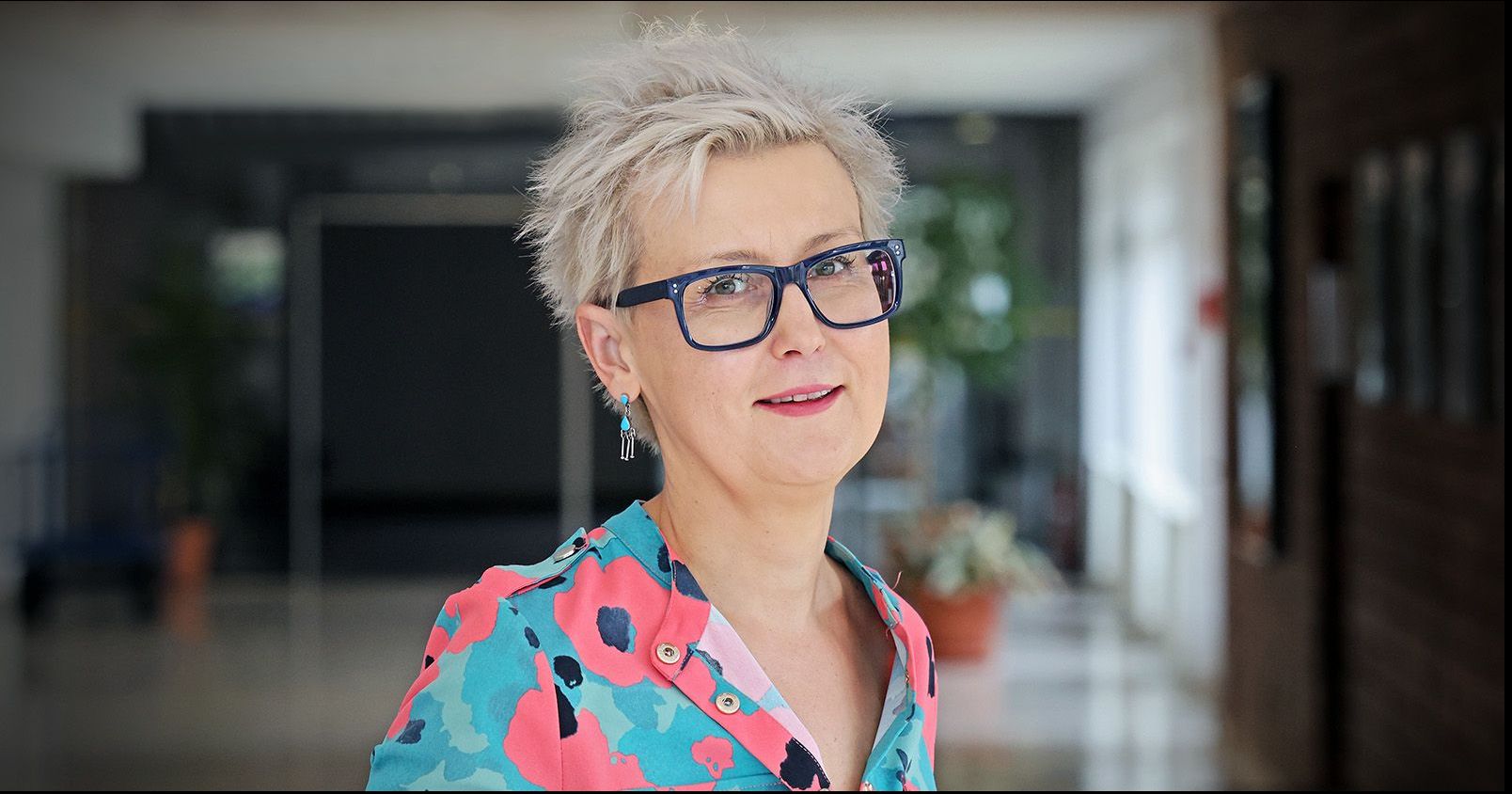 Campus life
Campus life
University open to the world
“I would like Nicolaus Copernicus University to be perceived internationally as the first-choice European university," says dr habil. Magdalena Barwiołek, NCU Prof., Vice-Rector for International Relations.
Marcin Behrendt: The heads of the Ministry of Science and Higher Education, scientists and researchers are drawing attention to the need to strengthen the potential of Polish science and higher education through international exchange and cooperation. Is the NCU responding to this need?
Dr habil. Magdalena Barwiołek, NCU Prof., Vice-Rector for International Relations: - Of course. We work most closely and effectively with the centres within the YUFE (Young Universities for the Future of Europe - ed.). With all the universities in this alliance, we are trying to make the YUFE even more visible to staff, postgraduates and students. There are still some who are unaware that we are a member of this alliance, and even if they are aware of it, they do not realise what opportunities this offers. There is also a perception that the YUFE is only for humanists, and that 'scientists' have nothing to do with the alliance. Consequently, I initiated monthly, cyclical meetings with the internationalisation officers. The result of these is the so-called “internationalisation barometer" prepared by the International Partnerships and Educational Mobility Department - the result of mapping the international activities of the faculties. This allowed us to submit two interdepartmental applications to the NAWA Strategic Partnerships for funding for trips, conferences and training organised jointly with universities that we consider strategic for our university. These are the first applications of this kind in the NCU's history. The internationalisation barometer has made faculties aware that it happens that within a department different people collaborate with researchers from the same university without knowing it. Two NCU researchers go to Maastricht University at the same time, for example, and only there do they meet and find out that they are collaborating with the same unit. I hope that this mapping will allow the faculties and the university to intensify their international cooperation, that the submitted proposals will receive funding and that, regardless of the results of the competition, it will be a springboard for the faculties to submit further joint proposals for international activities.
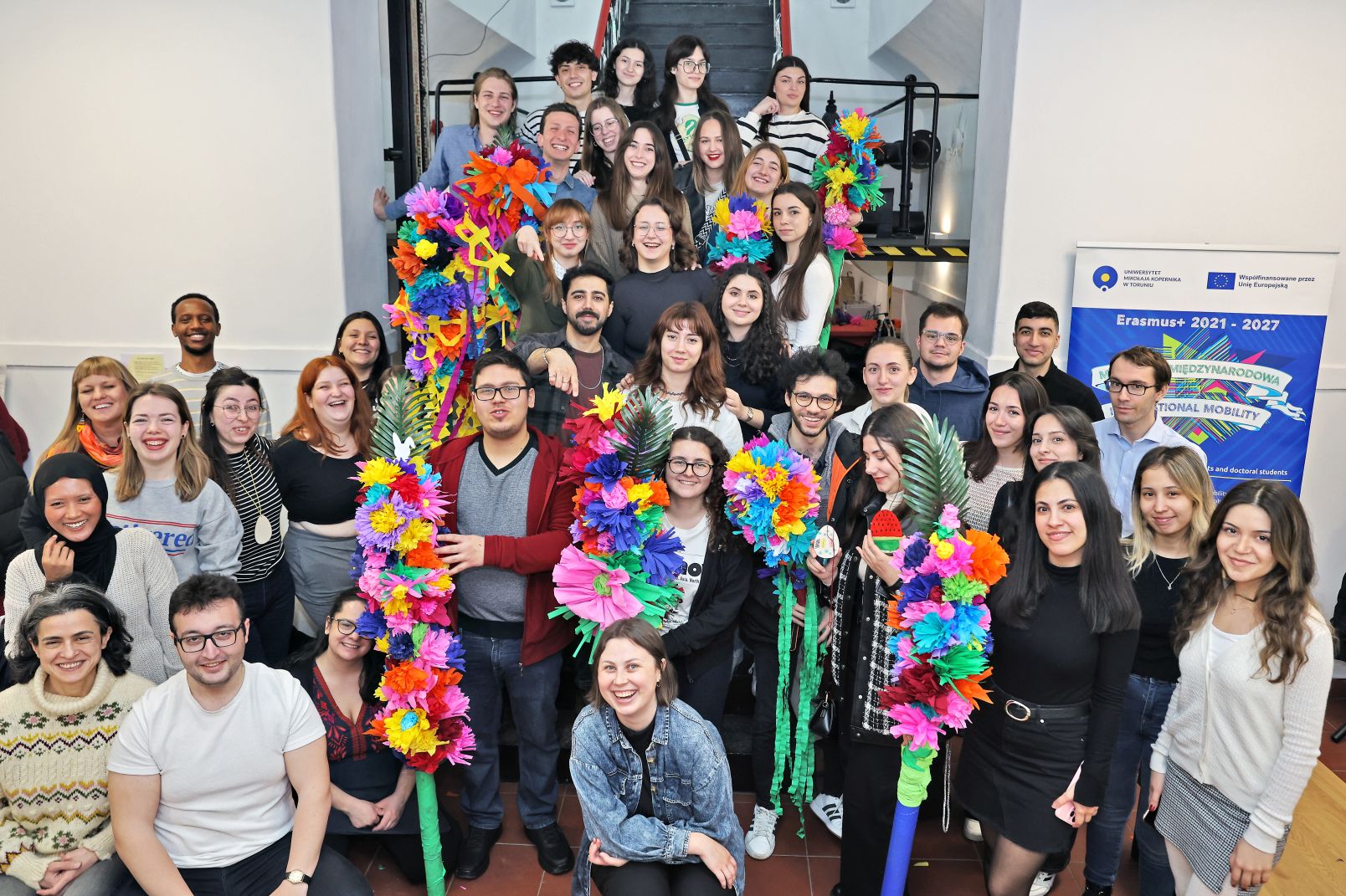
photo Andrzej Romański
Full membership of the YUFE was granted to our university in July 2020. Is there anything else the NCU staff don't know about this alliance?
- First of all, it is important to remember that the YUFE is for everyone - it is not divided by area or field. It is very inclusive, applicable to any group, not only academics, but also administration, students and doctoral students. Within the alliance, there are opportunities for different types of mobility, teaching, creating new courses of study. Such as the undergraduate programme Urban Sustainability Studies, which has already been created, and is being launched and is a huge success for us. There are 10 alliance universities involved in running the course, and seven of them are graduate universities, which means a graduate or undergraduate of this programme will receive a diploma from seven universities. The course allows for personalised learning paths and mobility to partner universities. In addition to this, we are in talks with the other universities in the YUFE alliance to create a second-cycle, master's degree course. It will not necessarily be related to sustainable urban development. Probably - and this is something we would very much like - we will try to open a European programme on the presence of artificial intelligence in various areas. Within the Young Universities for the Future of Europe alliance, there is the possibility of scientific, educational and mobility cooperation. We also participate in pilot programmes for both PhD students and postdocs. In fact, the YUFE includes anyone who shows any willingness to cooperate within the alliance of 10 universities and affiliated universities. This offers tremendous opportunities. It is worth noting that the YUFE is also a socially engaged university. We believe that our universities have not only the potential but also the responsibility to shape society and promote its well-being. That is why our mission goes beyond science and research - we actively engage with local communities. At the NCU, we have organised Student Counselling Services as part of the YUFE, where students, under the supervision of experienced academic staff, share the knowledge and experience they have gained at the university, answering the questions of local residents. We also have a second network, the YERUN (Young European Research Universities Network - ed.). It is more research-oriented, and its CONNECT BY YERUN platform enables researchers to network. There are many opportunities, you just have to be willing to use them.
The NCU cooperates internationally not only with universities affiliated with the YUFE and YERUN, doesn't it?
- We have agreements and collaborations with various Ukrainian universities, including Kyiv. These tend to be broad-profile universities, so in fact each of our researchers has the opportunity to establish individual cooperation, which is what is happening. Ukrainian delegations come to Toruń, we organise meetings at the faculties and, as a result, bottom-up networking takes place, because Ukrainian universities are very keen to cooperate with the NCU at every level: teaching, research or student exchange - this applies, of course, to visits to the NCU at the present time. However, there is the possibility of online classes and indeed, due to the current situation, this mode works at Ukrainian universities. We also cooperate with Chinese universities. I was in Beijing a few months ago, and the visit was about cooperation with Beijing International Studies University, with which our Faculty of Humanities cooperates. In a short while, we will be establishing cooperation and signing agreements with three more Chinese universities, and these will include joint studies. We have a cooperation agreement with universities in Taiwan and our students travel there as well, and we are now expanding our contacts with this country. Hence our presence at various trade fairs, including in Indonesia, where the desire to establish cooperation with us on various levels, i.e., both educational and scientific, is very high.
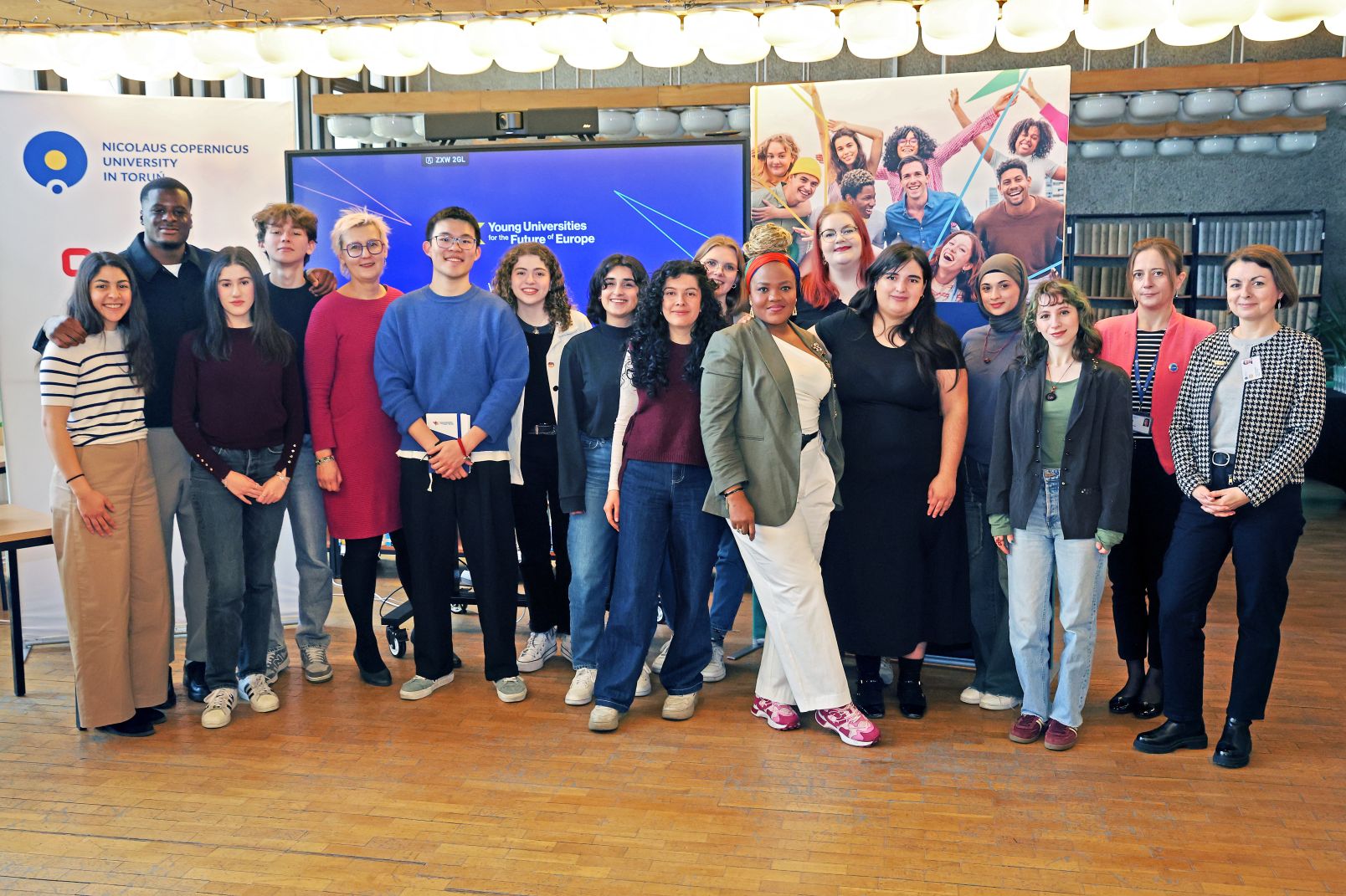
photo Andrzej Romański
It seems we are recognised and appreciated in the Far East. What does this result from?
- One factor for sure is the quality of teaching, and the high professional level of our university's teaching and research staff, which is very important for foreigners when choosing a university to work with. Another very important element is that we offer accommodation in student halls of residence, which is not obvious in other countries and, for example, in the Netherlands it is virtually impossible to get a place in a student house. Thirdly, both the Nicolaus Copernicus University and the city of Toruń are friendly and attractive. Besides, geographically, we are in such a place that incoming students are able to visit the whole of Europe, treating Poland and Toruń as a well-connected and relatively cheap place.
Are the NCU authorities looking for new directions for 'expansion'?
- Following what the National Agency for Academic Exchange NAWA and the Ministries of Science and Higher Education and Foreign Affairs say, we are trying to reach out to the Polish diaspora, i.e., Polish emigrants and their descendants, and encourage them to study at the NCU. Recently, the staff of the Collegium Medicum and the then NCU Recruitment and Student Affairs Department and now the International Partnerships and Educational Mobility Department participated in a very large education and science fair in the USA. There, interest in our teaching offer is very high, especially in all types of medical studies. We also participated in a fair in Turkey, with which we have very good cooperation both in the scientific and teaching spheres. The NCU is very popular with students from Turkey, many of whom are staying with us as part of the Erasmus+ programme.
The Rector, Prof. dr. habil. Andrzej Tretyn, would like to see the number of students at the NCU increase. Meanwhile, there has been a demographic decline in Poland for many years. Are students from abroad able to fill the academic lecture halls?
- We are all aware of this and the effects of the demographic decline will be faced in various ways. In addition, interest in higher education itself is changing. At present, young people in Poland see the sense of studying at undergraduate level. Later on, we will probably have to offer more and more short forms of education ending in certificates. To answer your question: the vacant places at our university can be filled by international students. That is why we are working to increase the number of English-language courses in our teaching offer, we are increasingly participating in various fairs and cooperating with various universities. We have opened an International Point in the Copernican Integration Centre, an information point for the NCU's international students and staff, providing assistance in administrative, formal and legal matters. We have applied to be part of the Euraxess network offering free information and support to PhD students and researchers and the institutions that employ them for mobility and career development at home and abroad. I hope to have an Erasmus+ InnHUB established at the Copernican Integration Centre by June. This is a cross-sectoral innovation centre for European education programmes and the popularisation of the Erasmus+ offer. This will provide a comprehensive support centre for internationals. I think it's a completely different level that the NCU is now moving to.
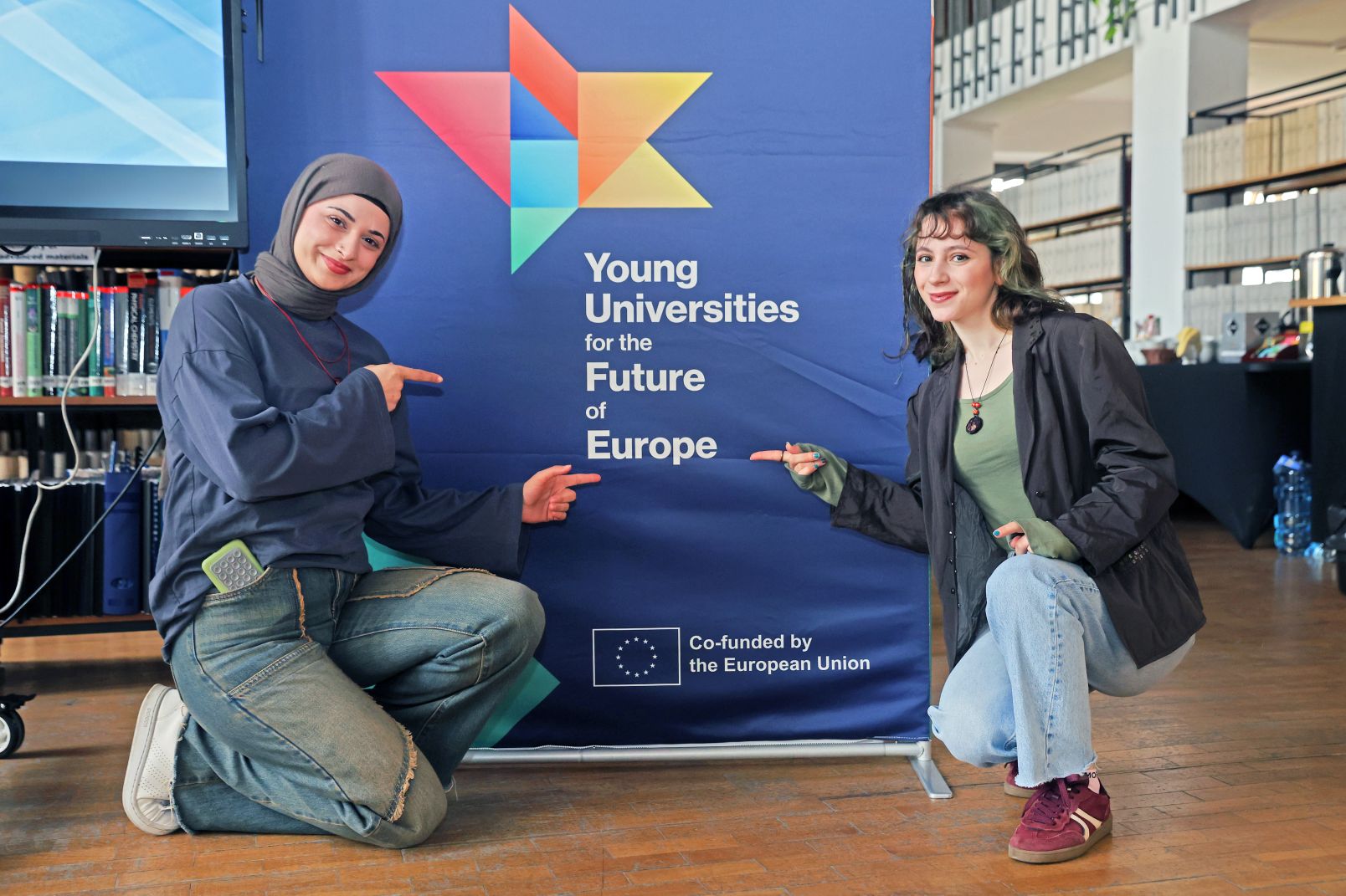
photo Andrzej Romański
Where is the NCU going to look for new students?
- The areas of interest are several. Europe, of course, but also countries in the Far East. We notice a very strong interest in studying in Poland in Vietnam. We already have our ambassadors there, i.e., people who graduated from the NCU in the past and remember it well. The situation is similar in Indonesia, where our graduates encourage others to study with us. It seems that African countries will be an interesting direction, but due to visa restrictions, for the time being all universities in Poland have limited cooperation with these countries. I am a member of the CRUP (Conference of Rectors of Polish Universities - ed.) committee for internationalisation, and I have participated in many meetings with representatives of the Ministries of Foreign Affairs and Science and Higher Education concerning the solution of the visa issue. If this is successful, and the visa law is already in the legislative process, we will be able to open up to even more students from abroad.
You visited Morocco in the autumn …
- ...Hassan II University in Casablanca. We are cooperating with this university and its authorities are strongly interested in expanding this cooperation. This is a huge broad-profile university that is able to co-operate with us at every level and there is actually no limit to the number of students who can come to us. We have also submitted an application for an Erasmus Mundus Joint Master Degree, of which NCU would be the coordinator. Vietnam, Indonesia, Morocco - if we prepare an appropriate educational offer for their population, we should not have a problem with too few students. In addition, students from Europe also arrive at the university. They find Poland a safe and interesting country, and Toruń and the NCU a friendly place to live and study. So we have people from Ireland, Germany, the aforementioned Turkey, Finland, Portugal, Spain or Czechia.
What is this appropriate offer?
- First of all, we are mapping all the faculties, we have asked for information on what English-language courses they offer and what they could still offer. We are also asking what new courses they would be able to prepare; the world is changing rapidly all the time and the university is trying to respond to these changes. We pay attention to modern forms of education, personalised learning. An example of this is the recently created, admittedly for the time being Polish-language interdepartmental undergraduate programme entitled Renewable Energy Sources, for which recruitment will begin on 3 June this year. We are already thinking about an English-language offer in this area. At the same time, we are talking to the universities with which we are cooperating about their areas of interest and trying to develop a teaching offer together.
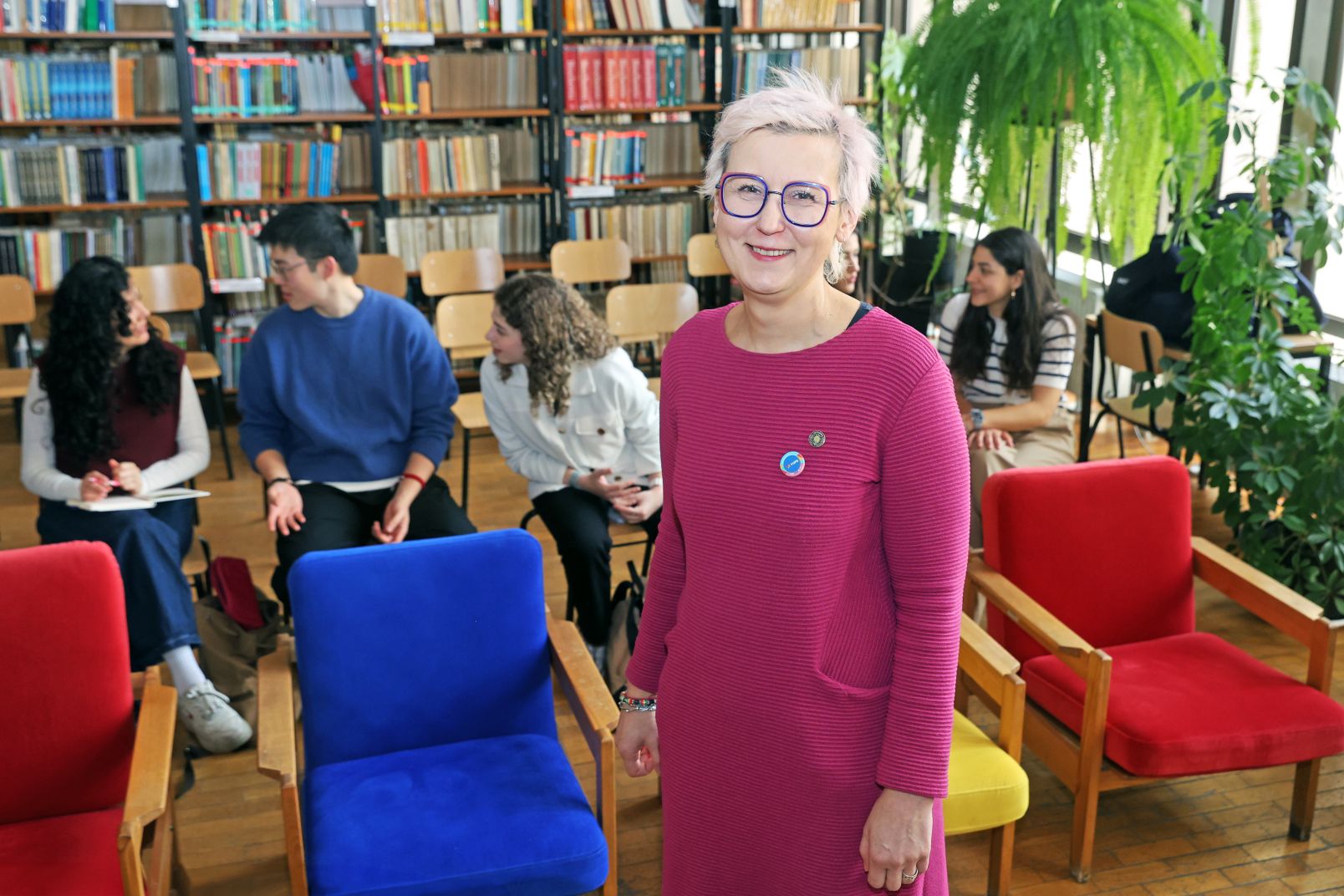
photo Andrzej Romański
Far East, Africa, Europe how not to drown in such a melting pot of nationalities, cultures, religions?
- Firstly, openness and empathy - in the face of such diversity, the most important thing is to be able to listen and try to understand the other person. This allows you to build bridges, to see other people from their perspective. In fact, regardless of latitude, religion or culture, we are all the same. We all want acceptance and understanding, everyone wants to be happy. All you have to do is to be willing to see it. Secondly, education - learning about the traditions, history and culture of other nations allows us to build a platform for mutual respect. Thirdly, openness to dialogue and diversity, and curiosity about the world and other people - diversity requires the ability to adapt to new circumstances, because each culture has its own specific rules and values.
What are your upcoming travel plans?
- I am heading to Japan for a week at EXPO2025, where the Polish Science Week will take place. And then China is on the agenda, where we will be signing cooperation agreements with four universities.
Where will the NCU be on the international scene at the end of the current term of the rectoral authorities?
- I would like the NCU to be seen as a European university of the first choice. So that it's not the kind of university that young people only think well of when they've failed to get into other universities in Europe. I would like us to be a university that people think about: 'maybe Poland, maybe the Netherlands, they are comparable. I'll just check, for example, if the weather is better in Toruń or in Maastricht, if they offer a place in a student residence, because in terms of research and education they are at the same level." This is the dream of the entire rector's team of the University.
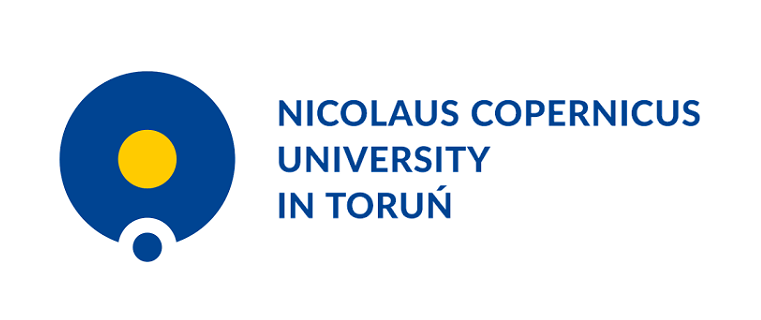 NCU News
NCU News







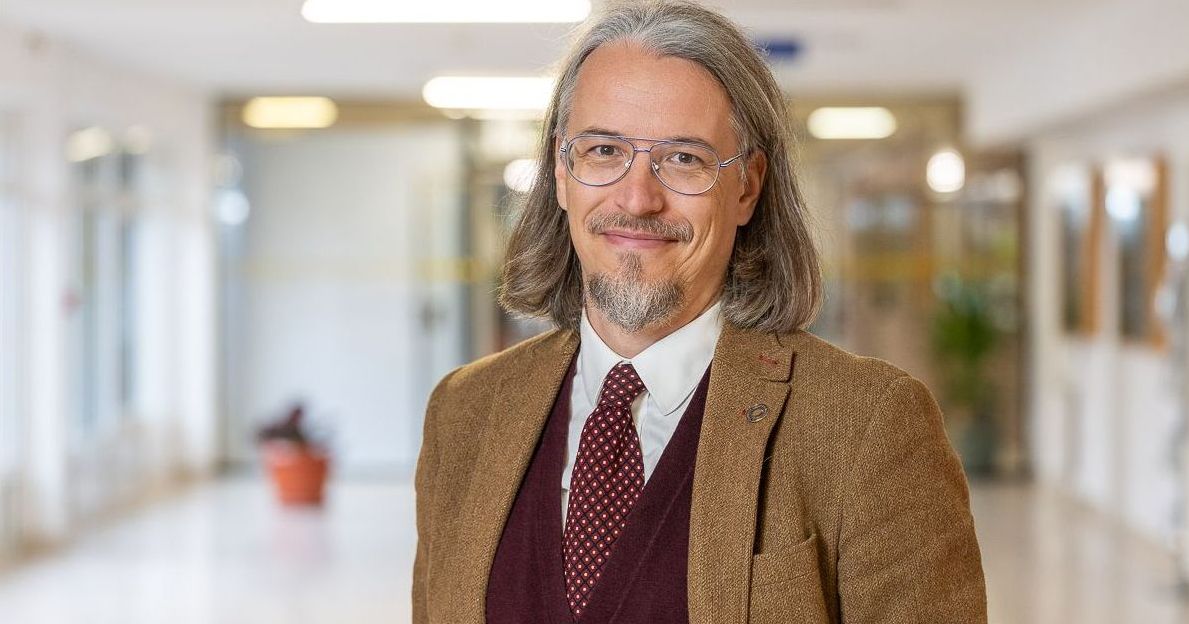 Campus life
Campus life
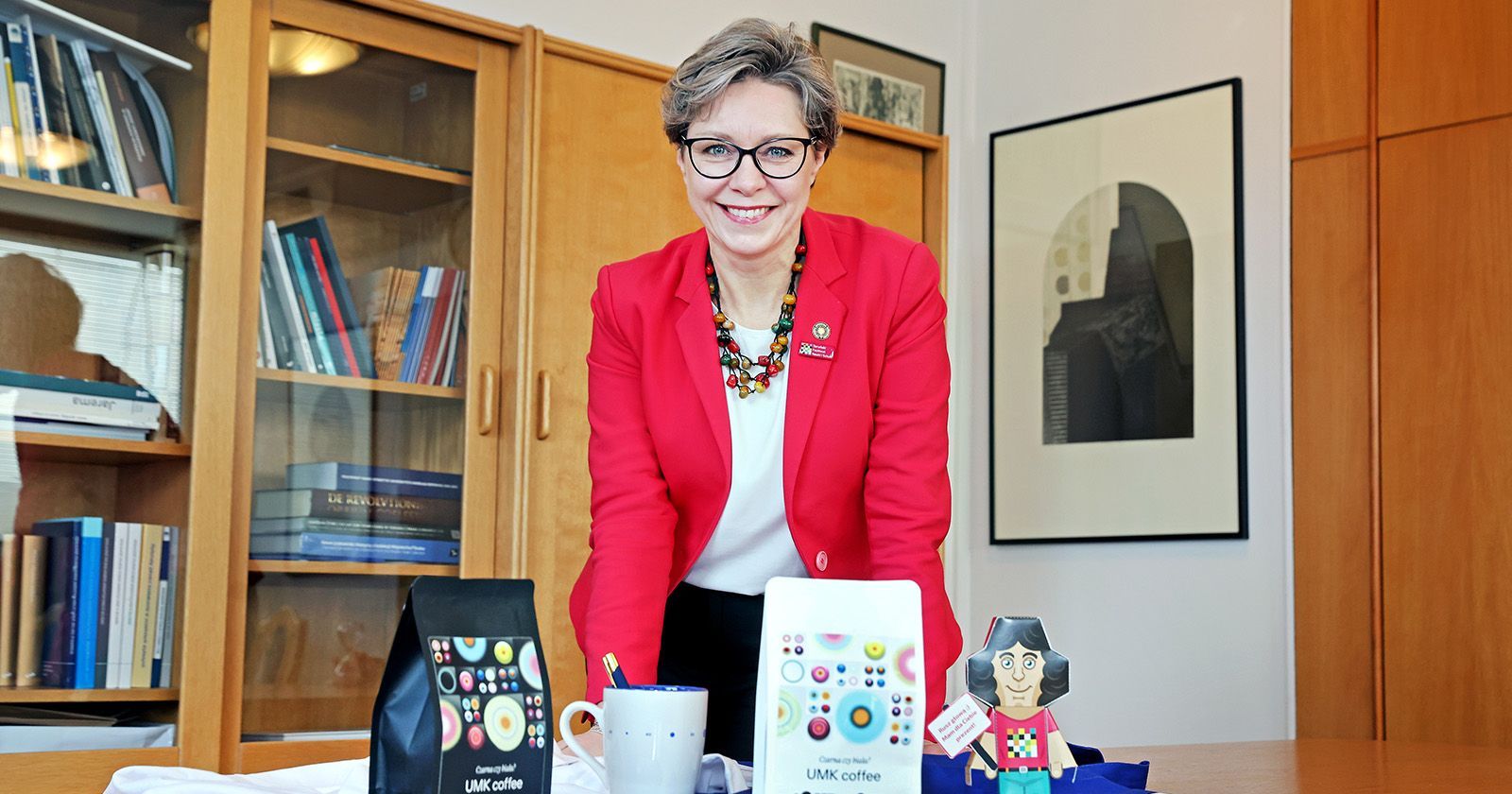 Campus life
Campus life
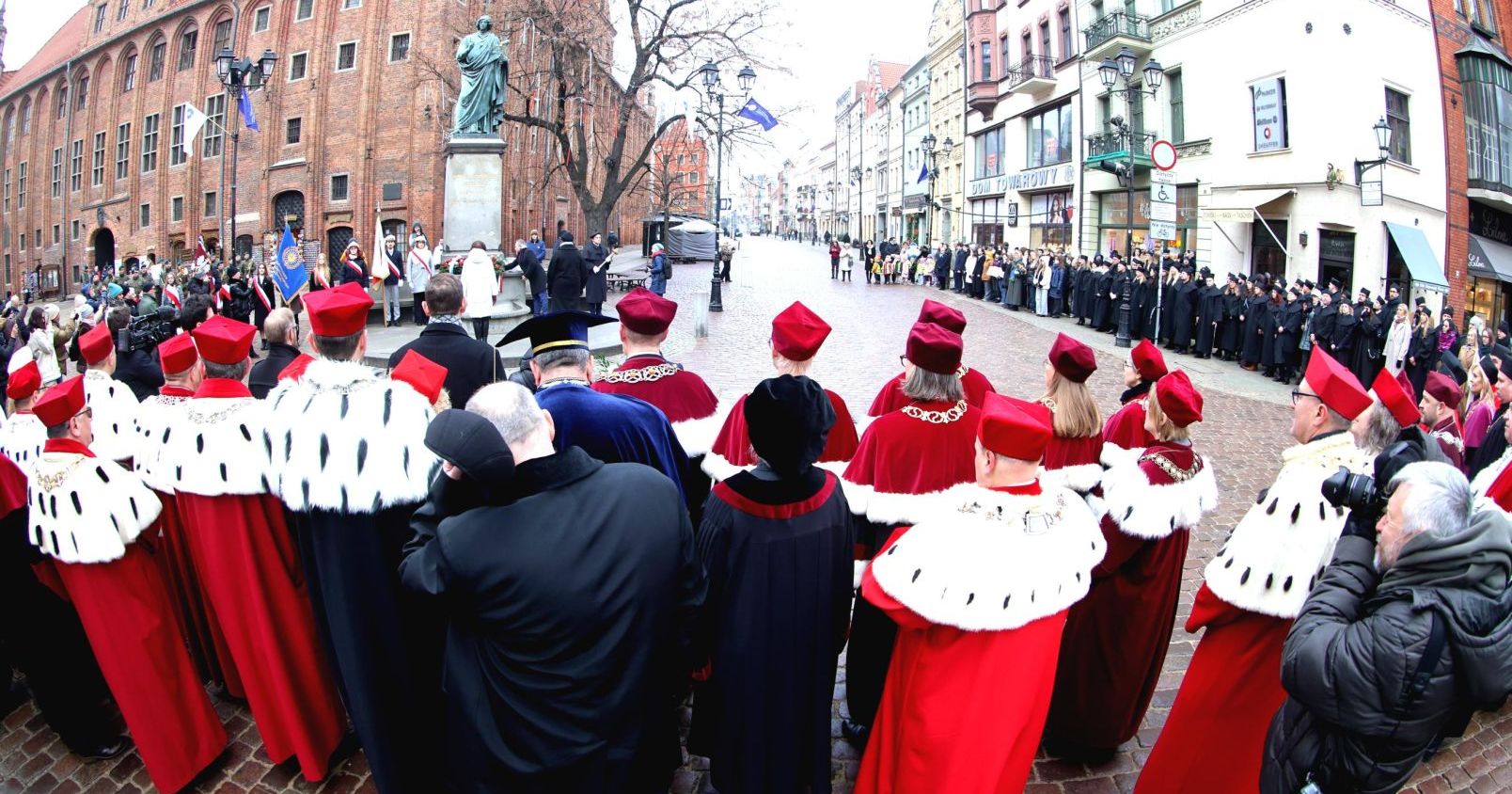 Campus life
Campus life

